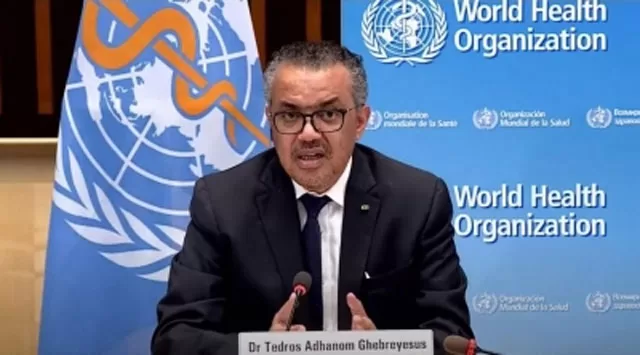Washington, D.C. – In a highly consequential move, former President Donald Trump announced that the United States will begin the formal process of withdrawing from the World Health Organization (WHO), fulfilling a promise he made during his presidential campaign. This decision, marked by a newly signed executive order, reignites the controversy over U.S. engagement with the global health body.
Trump’s dissatisfaction with WHO dates back to the COVID-19 pandemic when he accused the organization of slow response times and alleged bias towards China. Speaking at a press event, Trump described WHO as “owned and controlled by China,” adding, “World Health ripped us off.”
The withdrawal process will take a year to complete, adhering to the terms established when the U.S. joined WHO in 1948. During his first term, Trump had already initiated a withdrawal and halted funding, but President Joe Biden reversed the decision upon taking office.
Impact on WHO and U.S. Interests
The departure of the United States would be a seismic shift for WHO, which relies heavily on U.S. contributions. Between 2022 and 2023, the U.S. provided $1.284 billion to WHO, far exceeding the contributions of other nations like Germany. Losing its largest donor could significantly impact WHO’s ability to address global health challenges, from coordinating vaccine distribution to responding to pandemics.
Critics argue that the move will also harm U.S. interests. WHO provides crucial access to global health data, coordinates responses to disease outbreaks, and sets international health standards. Without membership, the U.S. would lose direct input in these processes.
“This is the most cataclysmic decision,” said Lawrence Gostin, professor of global health law at Georgetown University. “It’s a grave wound to American national interests and our national security. This will leave agencies like the CDC and NIH flying blind.”
Elisha Dunn-Georgiou, president of the Global Health Council, echoed similar concerns, noting that the withdrawal would cede influence to countries like China and Russia. “It’s really bad for the U.S.,” she stated. “Without a seat at the table, the U.S. loses its ability to hold other nations accountable during health crises.”
Support for Alternative Approaches
Not everyone sees the decision as entirely negative. Brett Schaefer, a research fellow at the Heritage Foundation, suggested that the U.S. could address global health issues outside the WHO framework. “There’s a reason why UNAIDS, GAVI, and the Global Fund exist,” he said, emphasizing that alternative organizations may offer more effective responses to health challenges.
A Polarizing Decision
The announcement has sparked intense debate, with supporters praising Trump’s resolve to hold WHO accountable and critics warning of the risks to global health security. As the year-long withdrawal process unfolds, the implications for both the U.S. and the world will become clearer.
For now, Trump’s decision sets the stage for a dramatic reconfiguration of the United States’ role in global health leadership.











